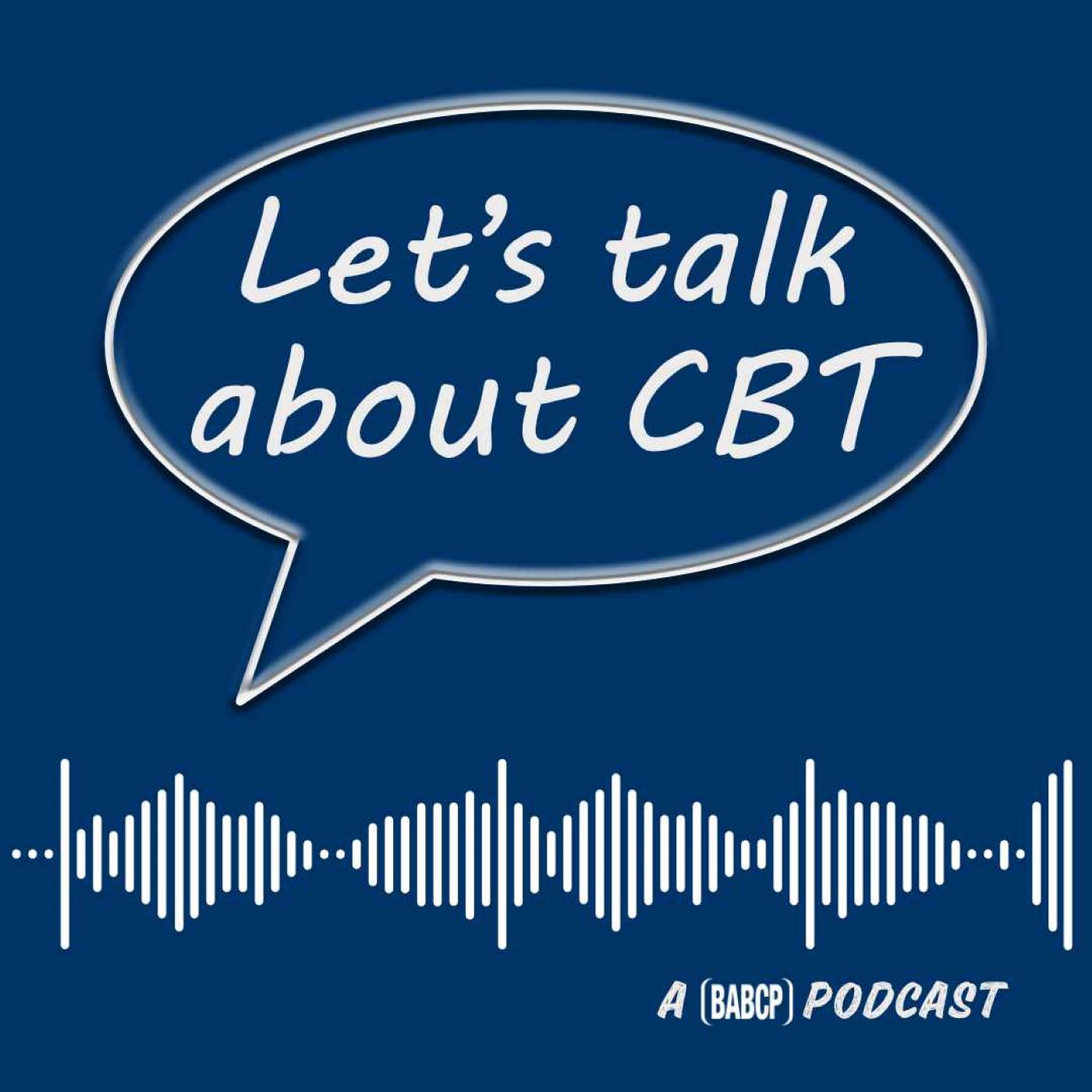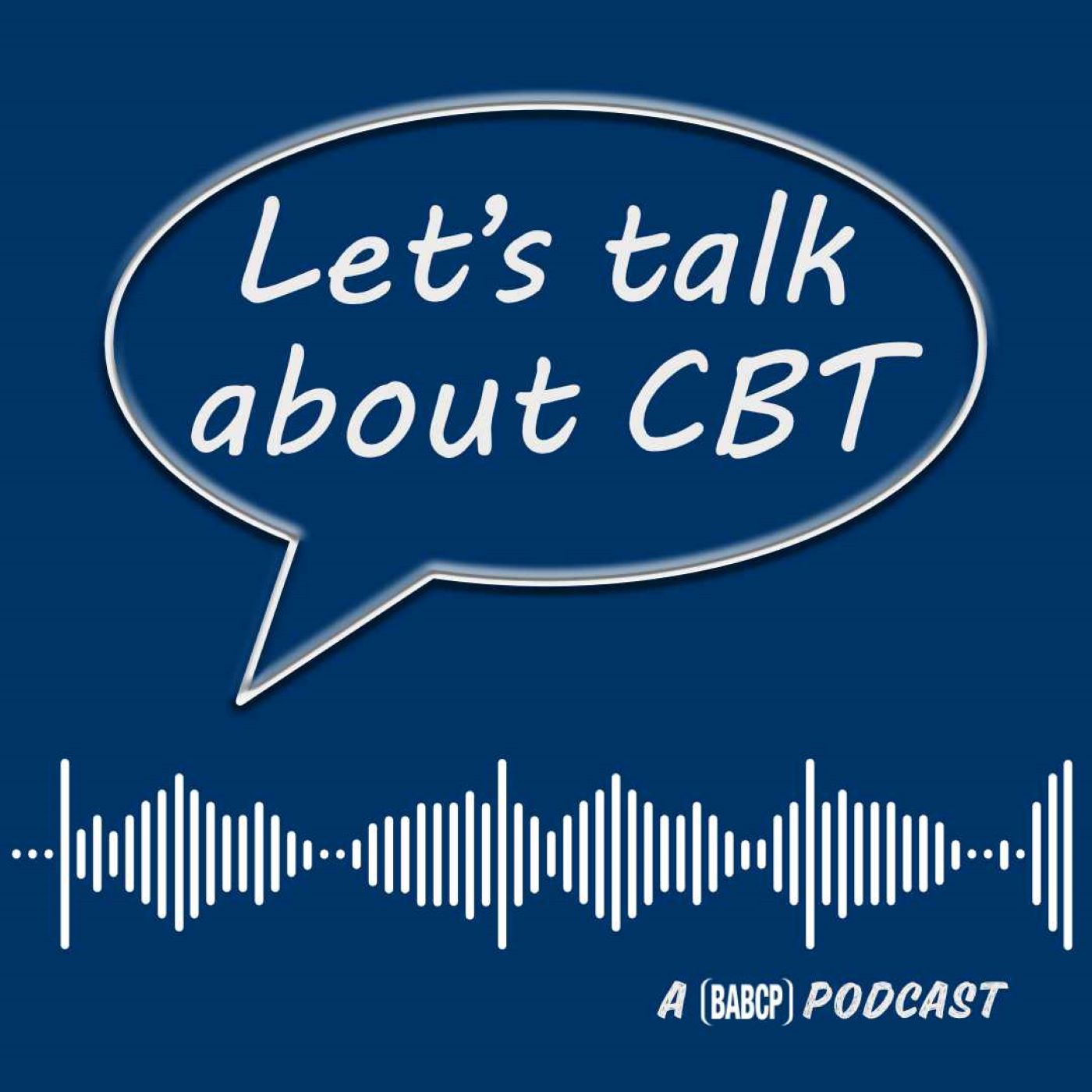Let’s talk about…. mental fitness in sports
Description
In this episode of Let’s Talk About CBT, Helen Macdonald speaks with Phil Cooper, mental health nurse and co-founder of the charity State of Mind Sport, and Ian Knott, former professional rugby league player and State of Mind presenter.
Phil shares how State of Mind was born out of tragedy and developed into an award-winning mental fitness programme, now reaching thousands of athletes across the UK and beyond. Ian talks candidly about his experience of severe injury, depression, and suicidal thoughts after retiring from sport, and how CBT helped him to rebuild his life.
We hear how sports settings are being used to break down stigma, encourage conversations, and promote mental health support—particularly among men—and how brief interactions and powerful personal stories can save lives.
Resources & Links:
Information on CBT and how to find a therapist
If you or someone you know needs urgent help, reach out to Samaritans at 116 123 (UK) or visit samaritans.org
Find our sister podcasts and all our other episodes in our podcast hub here: https://babcp.com/Podcasts
Have feedback? Email us at podcasts@babcp.com
Follow us on Instagram & Bluesky: @BABCPpodcasts
Credits:
Music is Autmn Coffee by Bosnow from Uppbeat
Music from #Uppbeat (free for Creators!): https://uppbeat.io/t/bosnow/autumn-coffee
License code: 3F32NRBYH67P5MIF
This episode was produced by Steph Curnow
Transcript:
Helen: Hello, and welcome to Let's Talk About CBT, the podcast where we talk about cognitive and behavioural psychotherapies, what they are, what they can do, and what they can't. I'm Helen MacDonald, your host. I'm the senior Clinical Advisor for the British Association for Behavioural and Cognitive Psychotherapies
Today what we've got for you is an episode about mental health, mental fitness and sports, and I've got Phil and Ian here to talk to me today. Phil, will you just introduce yourself?
Phil: My name's Phil Cooper. I’m a mental health nurse by background. I used to work as a nurse consultant in mental health and drug and alcohol misuse. I love sport. And, for some strange reason or quirk of random chaos, I became to be one of the co-founders of State of Mind Sport charity that focuses on mental fitness.
Helen: Thank you, Phil. Ian, please, will you introduce yourself?
Ian: My name's Ian Knott. I'm a former rugby league professional and I currently am a presenter for State of Mind. I talk about my story, my lived experience of having to retire through a serious injury and then developing mental illness. So I talk about that.
Helen: Thanks very much, Ian, and I'm sure our listeners will want to hear more about that later in this episode. Firstly though, can I ask Phil to tell us a bit more? Phil, will you tell us about State of Mind and how it came to be and what it does?
Phil: Sure State of Mind Sport began unfortunately on the back of a tragedy within the sport of rugby league, where a Great Britain Rugby League international called Terry Newton, unfortunately took his own life in September, 2010. Sent great shock waves, I think, through the whole sport for such a high profile player. At the time there was relatively little support or mental health support for players at that time. I suppose as a mental health nurse who loves rugby league and sport, I read a league paper on a Monday morning, somebody wrote an article saying how the NHS and the sport should get together to try and prevent suicide. Also, somebody also wrote a letter, again a mental health professional, called Malcolm Rae and Ernie Benbow had written the article and I saw this and thinking, wow, this is Monday morning, I shall write these two individuals- checked with my chief exec, of course, because obviously you have to be doing all these things- and then invited them to a meeting we were going to have in good old health style a conference, that soon changed when we invited a couple of players such as Ian, and they suggested, why didn't we ask the governing body for a round of fixtures to promote mental health at that time or mental fitness. I then found myself in the strange position being ferried to Hull Kingston Rovers Ground to be presented before all the chief execs of all the top divisions with clubs to say, this is a really good idea. It's free. So the sport love that bit and, we’ll deliver a session to your players before the season and then a round of fixtures themed around that. So we had a State of Mind round in 2011 and player bought into it. There was very little support, as I said, and they began to talk about it on social media. They wore t-shirts in the warmup before the round of fixtures, but crucially, they knew what it was about, and they were all bought in. Things have grown massively since that time, which has been great for us. And also promoting mental fitness in rugby league, one of the toughest sports on the planet.
Helen: Thank you Phil. So can you tell us a little bit more about what you really mean by mental fitness?
Phil: Certainly, okay. I think language is crucial, as I'm sure all your members will realise and will think about on a regular basis. So for me, to get into a situation of encouraging men or engaging men into something that will help them, if I say, if I used to say, well, we'll come in and deliver a mental health session for you into a local grassroots sports club. I can imagine the reaction would be flipping heck, I'm not going into that. However, when you can make the case that actually you are going to go to training for physical fitness, what a lot of athletes will tell you that the mental fitness is perhaps the most important aspect of being a professional sports person or being the best sports person you can be. So therefore, if we go in and say, well, we're going to try and improve your mental fitness, men tend to sort of buy into that, especially if you go to them in their grassroots club, they wouldn't come to me in a community mental health team, but they would certainly go training two nights a week in their local club. And you have a captive audience potentially, especially when the weather's bad and they can't train on the pitch. And the coaches will want something different to either entertain or, keep the players focused on what they want to achieve. So State of Mind deliver mental fitness sessions so we look at anxiety and depression using a GAD-7 and a PHQ-9, as I'm sure your members will be very familiar with and again, we deliver that in a style that's not sat down in front of somebody asking them to fill in a questionnaire with a pen or online or whatever. So we'll do that. We will have two presenters usually. So Ian being one of those, I might have been the clinical dude once or twice with Ian, of course, and I'll ask him about how he's been feeling over the last few weeks using a PHQ-9 or a GAD-7. He'll tell me some strange answers, which he never used to tell me what they were going to be, I would then ask the audience how anxious or how low in mood Ian was based on those answers. So you keep all the information away from your audience, but you involve them to use all the different learning styles, so audio visual, kinaesthetic, all of those learning styles to get to as many of those people as possible. So we've been doing that for 10 years. Hundreds of thousands of people have attended sessions, which is ridiculous when I think back, but also numerous people have told us that they changed their mind about taking their own life and that's the sort of thing that keeps you going every week. And going to wherever we're going of a Tuesday or a Thursday evening, or even as I found myself in a dressing room last Saturday, so before a football match, just talking to players. So all of those things, we do mental health first aid. You can look on stateofmindsport.org if you really want to know. I don't want to want too much about that, but that's what we do. And we go to people where they are. We try to engage people where they are.
Helen: And I'm hearing you are reaching a huge number of people, probably people who wouldn't easily go and look for help, like perhaps men in maybe more traditional settings where we don't talk about mental health or mental fitness as you put it. That's really important. But also this work is saving lives and that seems to me as a really important piece of


















